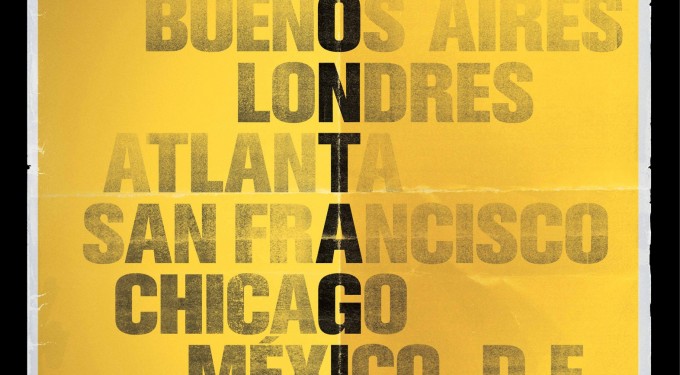Contagion
01.3.2012 | By Ted Faraone |
There are several things wrong with “Contagion,” the latest from helmer Steven Soderbergh. The most egregious is Warner Bros.’ US marketing campaign which uses taglines including “The world goes viral September 9,” “Don’t talk to anyone,” “Don’t touch anyone,” and the heroic “Nothing spreads like fear.” Oh, please!
This is nothing more than a cynical attempt to hypo a less-than-average big-budget picture featuring a big-name cast who could have been used far better in another vehicle — almost any other vehicle.
Plot revolves around a pandemic, worse than SARS, worse than H1N1, and probably worse than AIDS, although none of the creators has the fortitude to say so in as many words.
Structure takes its cue from some successful pics, such as “It’s a Mad Mad Mad Mad World,” “Crash” (2004), and “Babel,” wherein several storylines are intercut and woven into one. Title cards help the exposition, of which pic is bedeviled by too much.
The big cheat comes into play in the final reel, where the origin of the pandemic, which is not exactly a mystery, is revealed in flashback. To make matters worse, said revelation is no more than a bit of mudslinging at multinational corporations and at China.
Your critic has not brief for or against cross border businesses. He couldn’t care less unless he owns stock in one of them. The fictional corporation unwittingly at the heart of the “Contagion” pandemic is no more than a straw man set up in the final reel to give “Contagion” a degree of social significance — and create a villain for auds to hate. Pic also takes a low view of Chinese agricultural hygiene, which shares blame for killing something like two or three percent of the world’s population. Your critic also has little to say about China other than what Noël Coward wrote in “Private Lives”: “Very large.” Malthusians should love this picture. “Contagion” is sort of a bad version of “The Andromeda Strain.”
“Contagion” is billed as an action, sci-fi thriller. Two out of three aren’t bad. It falls short in the thriller part. It does, however, boast a very attractive cast of stars including Matt Damon, pic’s sole sympathetic character, who appears to be immune to the disease, Marion Cotillard, who appears to be on her way to becoming the French Charlize Theron in that she never looks the same in two pictures, as a World Health Organization official, Kate Winslet as a US public health field agent, and Laurence Fishburne as the Centers for Disease Control honcho (also her boss) who directs the US end of the investigation into the pandemic. Also central to the plot is Gwyneth Paltrow, who gets to appear without makeup, a mistake she should never again make in any picture, and who is central both in the opening and final reels to the denouement — even though she dies in pic’s first 20 minutes. Jude Law appears in an unlikely role as a corrupt blogger attempting to profit from the pandemic. His character’s name, Alan Krumwiede, is blatantly allegorical.
Give the filmmakers credit for sledge hammering home a point: Paltrow in the opening reel is in Hong Kong on the phone with her boyfriend in Chicago discussing a tryst. Her wedding and engagement rings take center screen. If anyone thinks that this scarlet letter has nothing to do with pic’s action, he or she should go back under his rock. This is about the most blatant giveaway your critic has ever seen. She plays the Minneapolis-based Damon’s wife.
Another significant plot element is the official Chinese penchant for covering up disasters, even of the epidemiological sort, such as SARS. Your critic had the benefit of the very attractive amateur film critic who makes her living as a doctor in international practice to confirm that pic is correct on the Chinese behavior as well as the medical facts. Filmmakers at least got the context right. But as the beautiful doctor also said, “If they found a guy like Matt Damon who was immune to the virus, they would have been all over him.” “They” in this case are the US public health authorities. In pic, Damon is more or less ignored or treated as a nuisance.
Unfortunately, in this ensemble pic, Damon is wasted to the extent that as its most sympathetic character, he does not get enough screen time. Augmenting his role might have given auds someone for whom to root.
But pic’s biggest waste is the legendary Elliott Gould. He gets only one fabulous moment, about half an-hour into pic, as a San-Francisco based epidemiologist who violates CDC orders to destroy his virus samples and gives the world its first real insight into the nature of the bug that kills almost without warning. Note to filmmakers: If you cast Elliott Gould, at least give him enough to do! If you don’t believe your critic, have a look at “The Caller” (2008).
In pic’s favor are staccato scenes, one right after another, which move the plot along. It has no fat. It is short on character development, but it is clear that other than Jude Law, pic’s bad guy is the germ, and it’s tough to write dialogue for a microbe. Title cards help put pic’s action in chronological context. About two thirds of the way through, “Contagion” develops a breakdown of society, a theme Fernando Meirelles handled so much more eloquently in “Blindness.” Unfortunately, Soderbergh does not rise to Meireilles’ hights.
“Contagion” carries a PG-13 rating. It runs 105 minutes but feels longer. Editing by Stephen Mirrione is crisp. Lensing by director Steven Soderbergh, himself, is workmanlike but displays a few flaws. Sound recording could be better. Some key lines of dialogue are inaudible. Production design is more than adequate, and kudos go to Howard Cummings for keeping it simple and straightforward. Thesps all turn in above par performances. It’s a pity that Scott Z. Burns’ screenplay and Soderbergh’s direction make “Contagion” less than the sum of its parts. It will depend on star power, which it has in spades, for revenue. Take the kids. They’ll probably laugh at the unintentional humor in a picture utterly devoid of comic relief. A professional screening audience did.


































